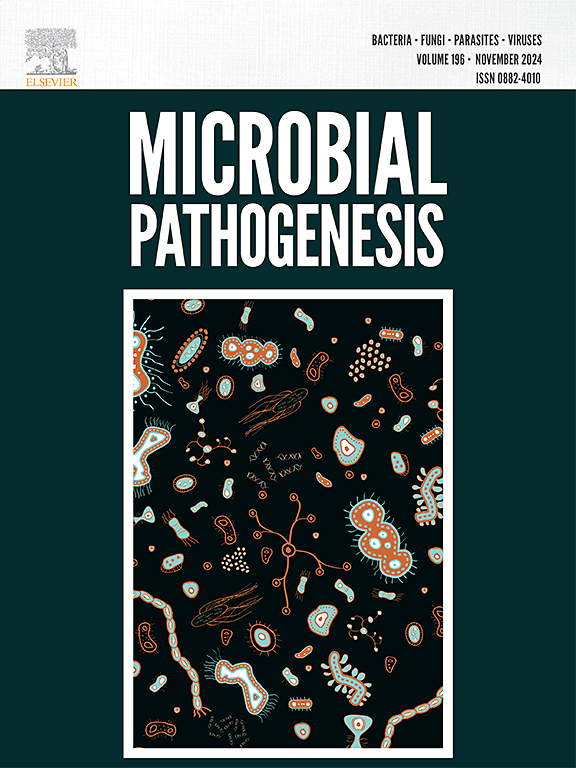细胞外囊泡在疟疾发病机制和治疗:新兴的见解和未来的观点
IF 3.5
3区 医学
Q3 IMMUNOLOGY
引用次数: 0
摘要
疟疾仍然是一项重大的全球健康挑战,每年造成数百万病例和大量死亡。耐药菌株的出现和缺乏有效的疫苗突出表明迫切需要新的治疗策略。最近的研究强调了细胞外囊泡(ev)的关键作用,特别是通过内体途径衍生的小ev -通常称为外泌体-在疟疾的进展和免疫反应的调节中。这些外泌体携带影响先天免疫和适应性免疫的生物活性分子。外泌体的生物发生受多种细胞因子的调控,它们参与宿主-病原体相互作用揭示了寄生虫病的复杂分子机制。本文综述了外泌体的生物发生、它们的分子载物及其在疟疾发病中的功能作用。在此背景下,鉴于外泌体的免疫调节潜力和作为疾病诊断和预后的生物标志物的效用,我们讨论了外泌体作为治疗靶点的日益增长的兴趣。此外,我们探讨了三维(3D)细胞培养系统和体内模型在阐明外泌体介导的宿主-寄生虫相互作用中的意义,强调了它们对推进疟疾研究的贡献。最后,我们讨论了该领域的当前发展和未来前景,倡导基于外泌体的干预措施作为一种有前途的疟疾治疗新范式。本文旨在全面综述疟疾与外泌体之间的相互作用,为创新的诊断和治疗方法开辟道路。本文章由计算机程序翻译,如有差异,请以英文原文为准。

Extracellular vesicles in malaria pathogenesis and Therapy: Emerging insights and future perspectives
Malaria remains a major global health challenge, responsible for millions of cases and substantial mortality each year. The emergence of drug-resistant strains and the lack of an effective vaccine underscore the urgent need for novel therapeutic strategies. Recent research has highlighted the pivotal role of extracellular vesicles (EVs), particularly small EVs derived via the endosomal pathway—commonly known as exosomes—in the progression of malaria and modulation of immune responses. These exosomes carry bioactive molecules that influence both innate and adaptive immunity. The biogenesis of exosomes is regulated by various cellular factors, and their involvement in host-pathogen interactions has revealed complex molecular mechanisms underlying parasitic diseases. This review provides an overview of exosome biogenesis, their molecular cargo, and their functional roles in malaria pathogenesis. Within this context, the growing interest in exosomes as therapeutic targets is discussed, given their immunomodulatory potential and utility as biomarkers for disease diagnosis and prognosis. Furthermore, we explore the significance of three-dimensional (3D) cell culture systems and in vivo models in elucidating exosome-mediated host-parasite interactions, emphasizing their contribution to advancing malaria research. Finally, we address current developments and future perspectives in the field, advocating for exosome-based interventions as a promising new paradigm in malaria therapy. This review aims to offer a comprehensive overview of the interplay between malaria and exosomes, opening avenues for innovative diagnostic and therapeutic approaches.
求助全文
通过发布文献求助,成功后即可免费获取论文全文。
去求助
来源期刊

Microbial pathogenesis
医学-免疫学
CiteScore
7.40
自引率
2.60%
发文量
472
审稿时长
56 days
期刊介绍:
Microbial Pathogenesis publishes original contributions and reviews about the molecular and cellular mechanisms of infectious diseases. It covers microbiology, host-pathogen interaction and immunology related to infectious agents, including bacteria, fungi, viruses and protozoa. It also accepts papers in the field of clinical microbiology, with the exception of case reports.
Research Areas Include:
-Pathogenesis
-Virulence factors
-Host susceptibility or resistance
-Immune mechanisms
-Identification, cloning and sequencing of relevant genes
-Genetic studies
-Viruses, prokaryotic organisms and protozoa
-Microbiota
-Systems biology related to infectious diseases
-Targets for vaccine design (pre-clinical studies)
 求助内容:
求助内容: 应助结果提醒方式:
应助结果提醒方式:


